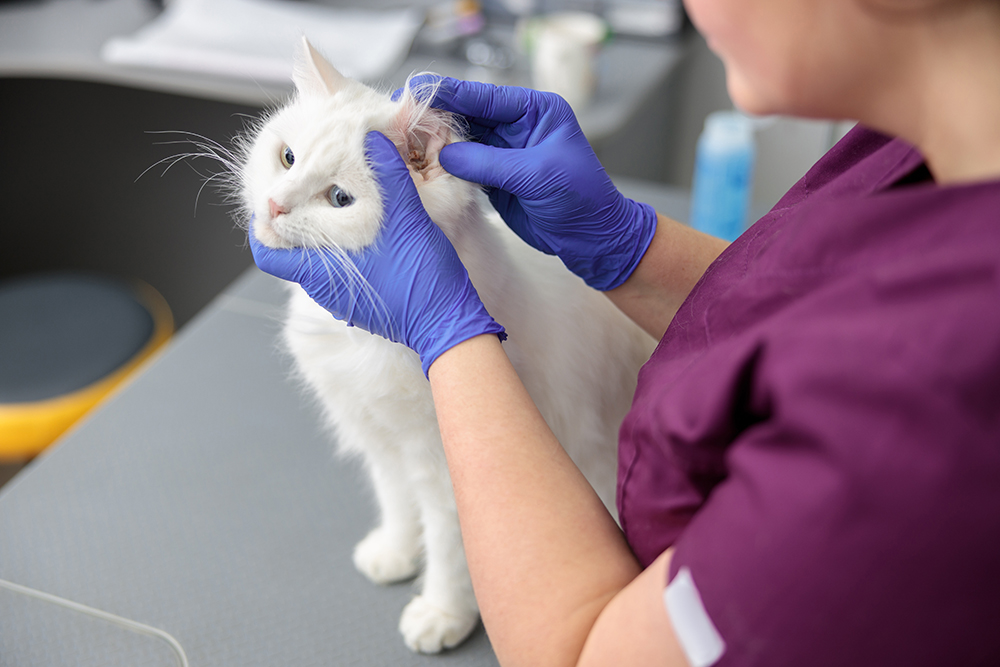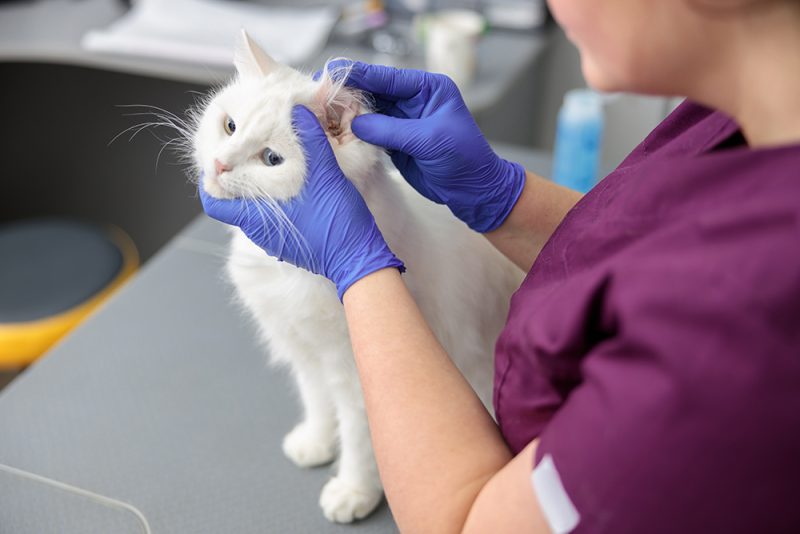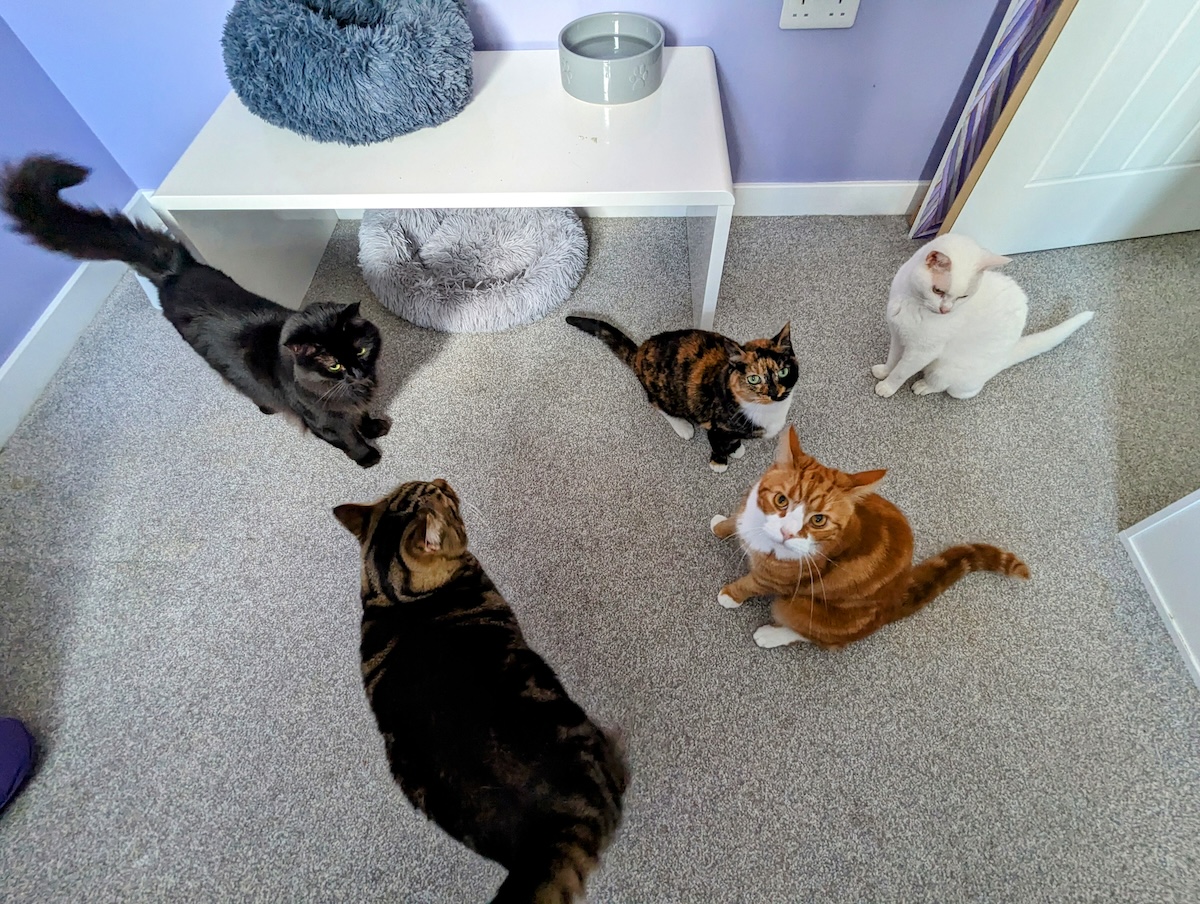Click to Skip Ahead
Who doesn’t love cat ears? They’re adorable and hilariously expressive! As charming as a pair of kitty ears can be, they can also cause your pet pain and discomfort when something is wrong. Ear problems in cats aren’t an everyday issue, but are common enough that cat owners should be aware of the most likely issues and how to spot them.
In this article, we will discuss eight common cat ear problems and provide tips for how they should be treated. But first, let’s talk about what you should do if your cat suffers from ear problems.
What To Do If Your Cat Is Experiencing Ear Problems
If you suspect that your cat is experiencing an ear condition, you have likely noticed worrying signs such as frequent scratching of the ears or shaking of the head. You may also notice signs that your cat is in pain, especially if they refuse to let you touch their ears.
While you should make note of the signs, you should not attempt to treat your cat’s condition on your own. Doing so can injure your cat and make the situation worse. Instead, you should take the signs you have observed to your vet to get a diagnosis. From there, your vet can instruct you on proper treatment.
Below, we’ll take a look at some of the most common cat ear problems and discuss possible treatments. However, it is essential that you talk to your vet before attempting any treatment methods to ensure that it is the best course of action for your pet.
The 8 Common Cat Ear Problems
1. Ear Mites
Ear mites are tiny parasites that infest your cat’s ears. They can be easily transmitted from one cat to another, making ear mites one of the most common ear issues cats develop, especially in multi-cat households. While kittens are the most likely victims of ear mites, adult cats can also develop an infestation.
If your cat has ear mites, you may notice them shaking their head and scratching their ears. Even though the mites are tiny, you may be able to spot them as they move around.
It is recommended that you take your cat to the vet and don’t use any over-the-counter medications without their consent. There are many treatments available, so get your veterinarian’s advice first.
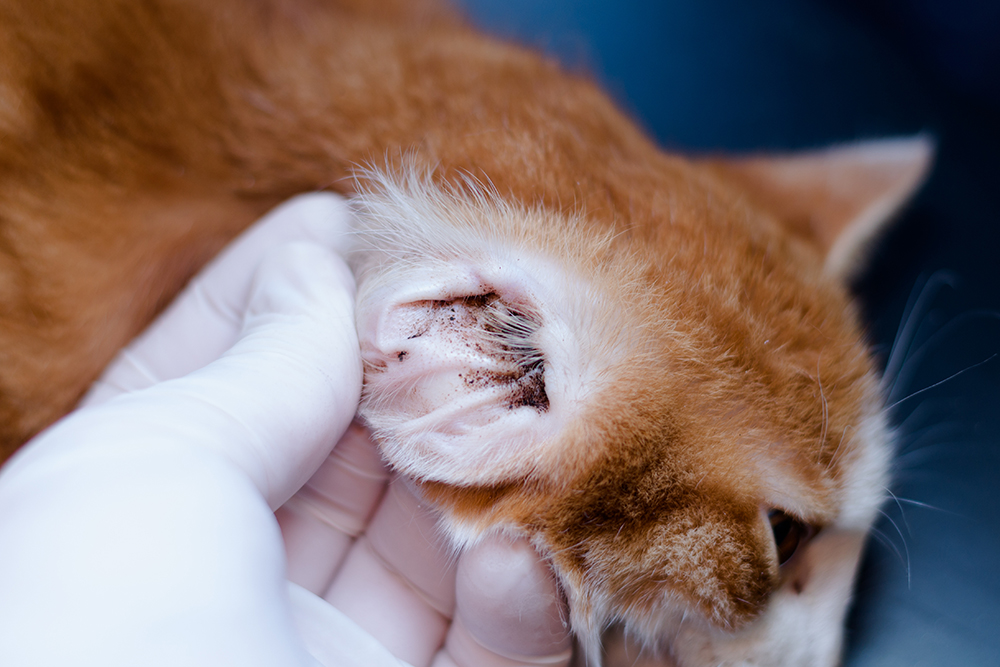
2. Outer Ear Infection
Another issue that your cat may experience is an outer ear infection or otitis externa, which can look similar to an ear mite infestation. Your cat will likely scratch their ears and shake their head, but they may also have red, swollen ears. A greasy, foul discharge may also be emitted from the ear.
Your vet must diagnose the ear infection before you can treat it. Depending on the cause of your cat’s ear infection, you may be instructed to give them topical medications, painkillers, anti-inflammatories, or ear cleaners.
3. Middle/Inner Ear Infection
If your cat suffers from a middle or inner ear infection, they will likely display more signs of discomfort than just head-shaking. You may also notice they tilt their head or have a drooping quality to one side of their face. Your cat may be lethargic, unwilling to eat, and unable to balance or walk properly.
Similarly, you may notice strange eye movements and an inability to hear things they normally should be able to. To diagnose a middle or inner ear infection, your vet must perform a physical exam, possibly including imaging.
The treatment may be long-term, and your cat may need a combination of antibiotics, topical treatments, and even surgery.
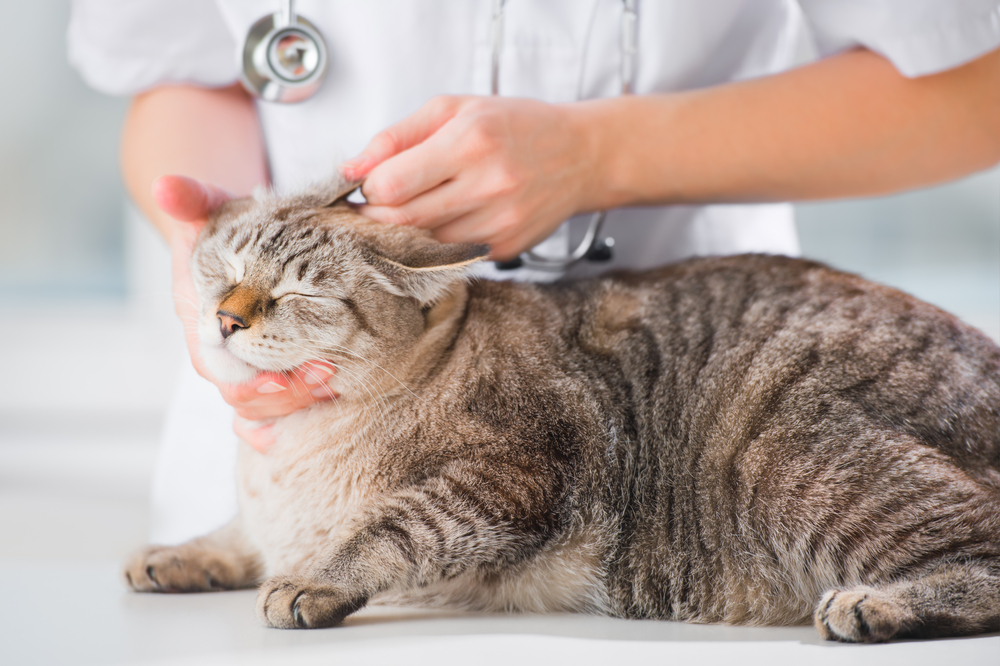
4. Foreign Objects
Cats are notoriously curious. While their inquisitive nature can be endlessly entertaining, it can also land them in a whole lot of trouble. If your cat has been sticking their nose into things they shouldn’t, it is possible that a foreign object could get lodged in their ear.
Typically, if your cat has something stuck in their ear, they will shake their head and rub at their ears in an effort to dislodge it and relieve the discomfort. Foreign objects in the ears typically require veterinary treatment. If left untreated, foreign objects can lead to ear infections and even hearing loss.
5. Injuries
If your cat spends a lot of time outdoors or lives in a multi-cat household, their risk of injuries increases. If you notice bites or lesions on or around your cat’s ears, act promptly. Minor cuts can be treated by gently cleaning with warm water and a mild soap a few times per day until healed, but deeper injuries must receive veterinary care.
Likewise, if your cat’s small wound fails to heal, take them to the vet. Without prompt treatment, your cat can develop an infection, which can worsen their situation.
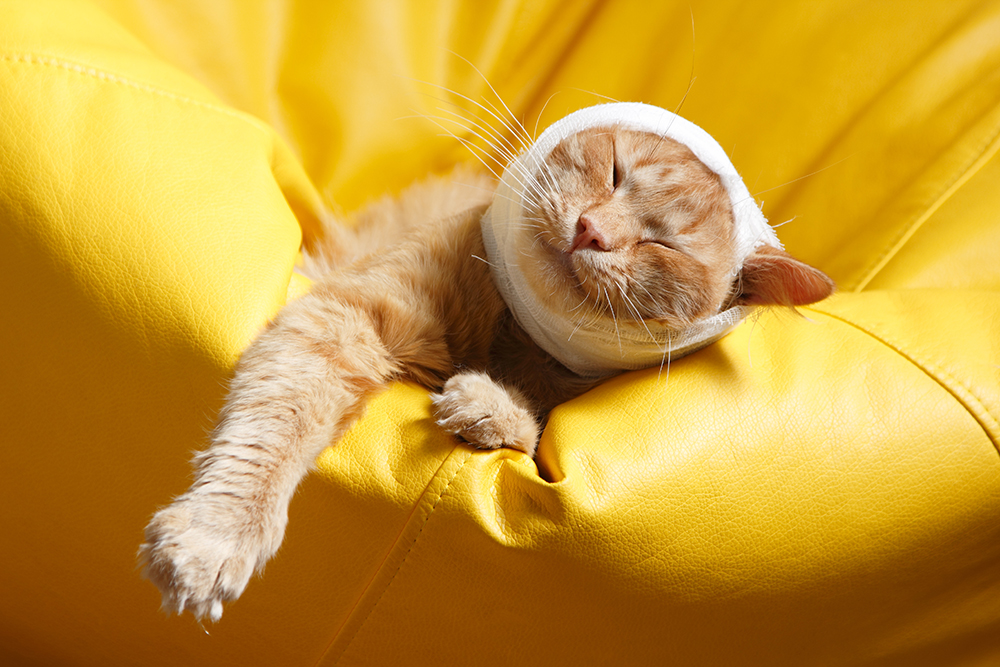
6. Allergies
Allergies can make a cat feel itchy, and itchy cats scratch themselves everywhere, including their ears. If your cat continuously scratches their ears and other areas of their body, but your vet has been unable to diagnose an ear issue, the problem may be allergies.
Talk to your vet about how you can determine the trigger of your cat’s allergies. Your vet may recommend that you try out a limited diet for several weeks to rule out the possibility of a food allergy.
Food allergies in cats can cause persistent ear infections that reoccur or don’t respond well to treatment. If your kitty continues to develop ear infections despite your best efforts, speak to your vet about the possibility for food allergies.
7. Polyps
Nasopharyngeal polyps are benign masses that grow inside a cat’s middle ear and can contribute to middle ear infections and changes in breathing.
It is impossible to treat this issue at home. Your vet will need to sedate your cat to examine the middle ear as thoroughly as possible. If polyps are discovered inside of the ear, your vet will need to surgically remove them.
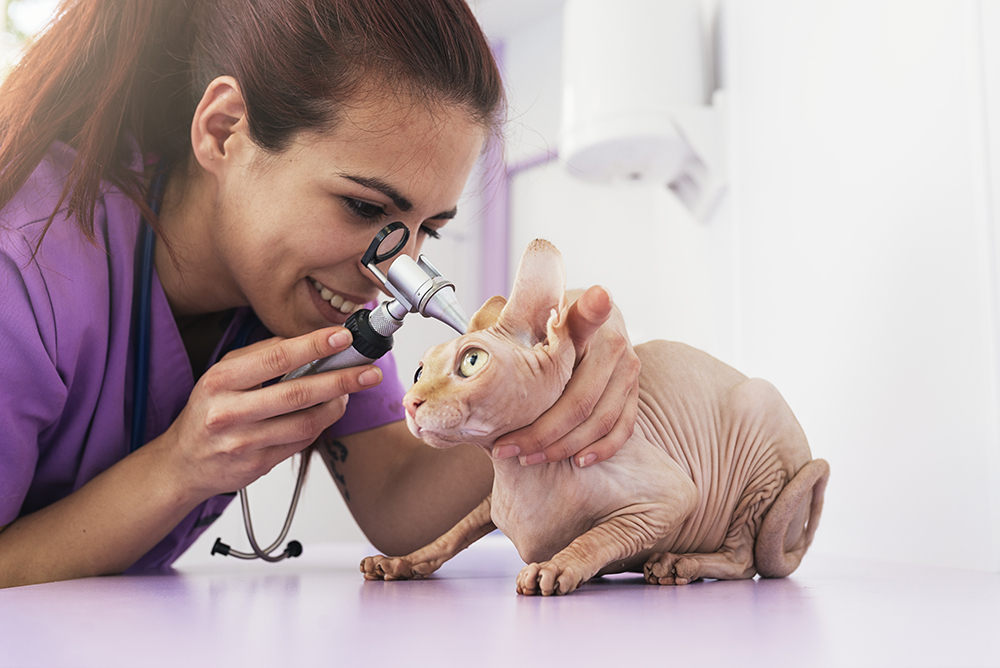
8. Mange
When a cat has mange, it is usually obvious. Mange is a general term used to describe a skin condition caused by parasites. Ear mites are a form of mange, but there are other types of it as well caused by different species of mites. You may notice your cat displaying signs of discomfort around their ears and other areas of the face, including severe itchiness, hair loss, crusts, or wounds.
You should take your cat to the vet for treatment within the next few days. However, if you notice signs such as lethargy or significant changes to eating and drinking habits, get your cat to the vet within 24 hours.
Vet-Approved Tips on How to Clean Your Cat’s Ears
Conclusion
We all enjoy cute kitty ears, but not when our cats are in pain. If your cat is displaying signs of discomfort, such as shaking their head or pawing at their ears, it is recommended that you make an appointment with your vet to determine if they are suffering from one of these ear problems. Consulting your vet is the best thing you can do to ensure that your cat receives prompt and effective treatment.
Featured Image Credit: Yaroslav-Astakhov

